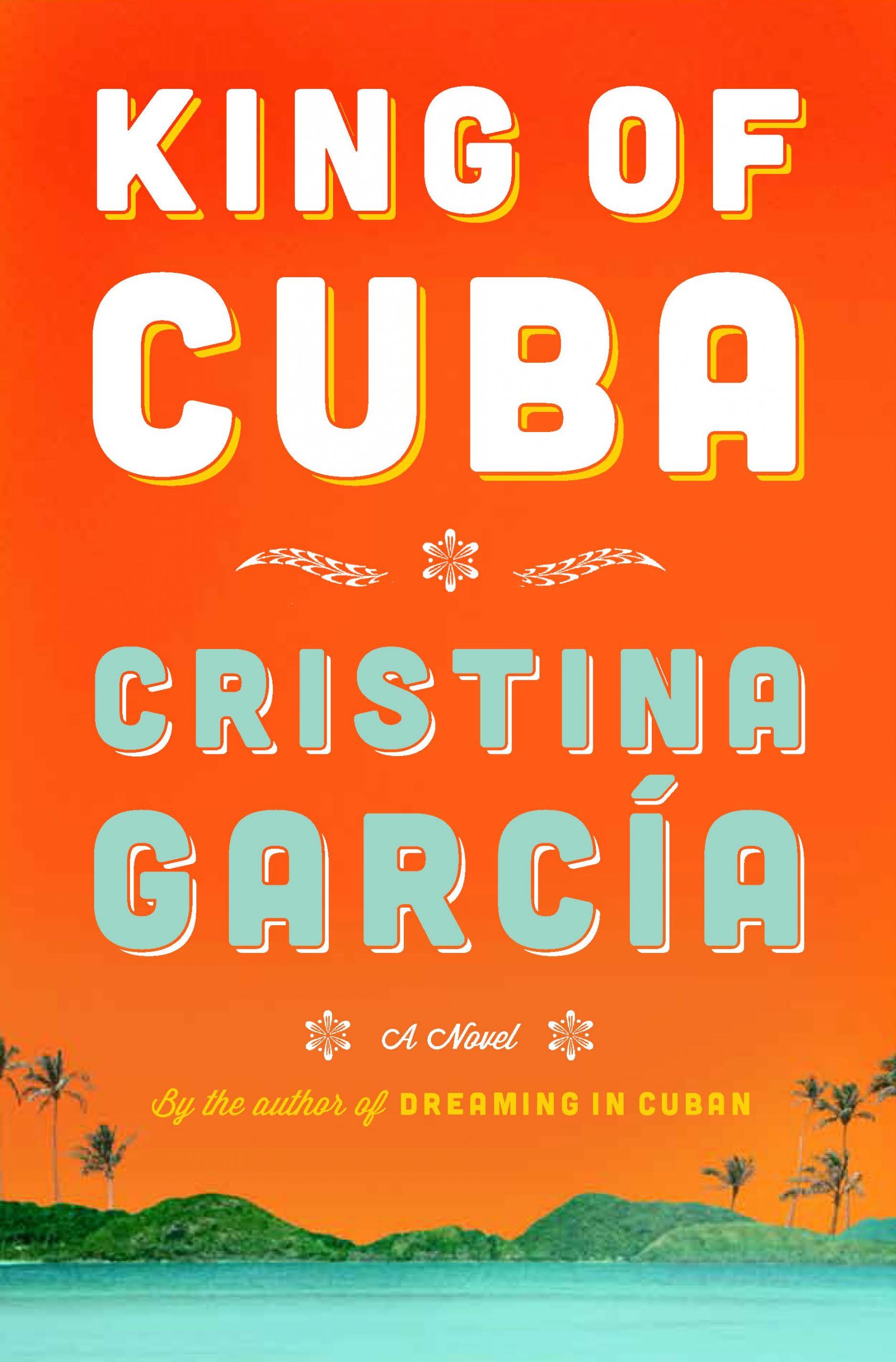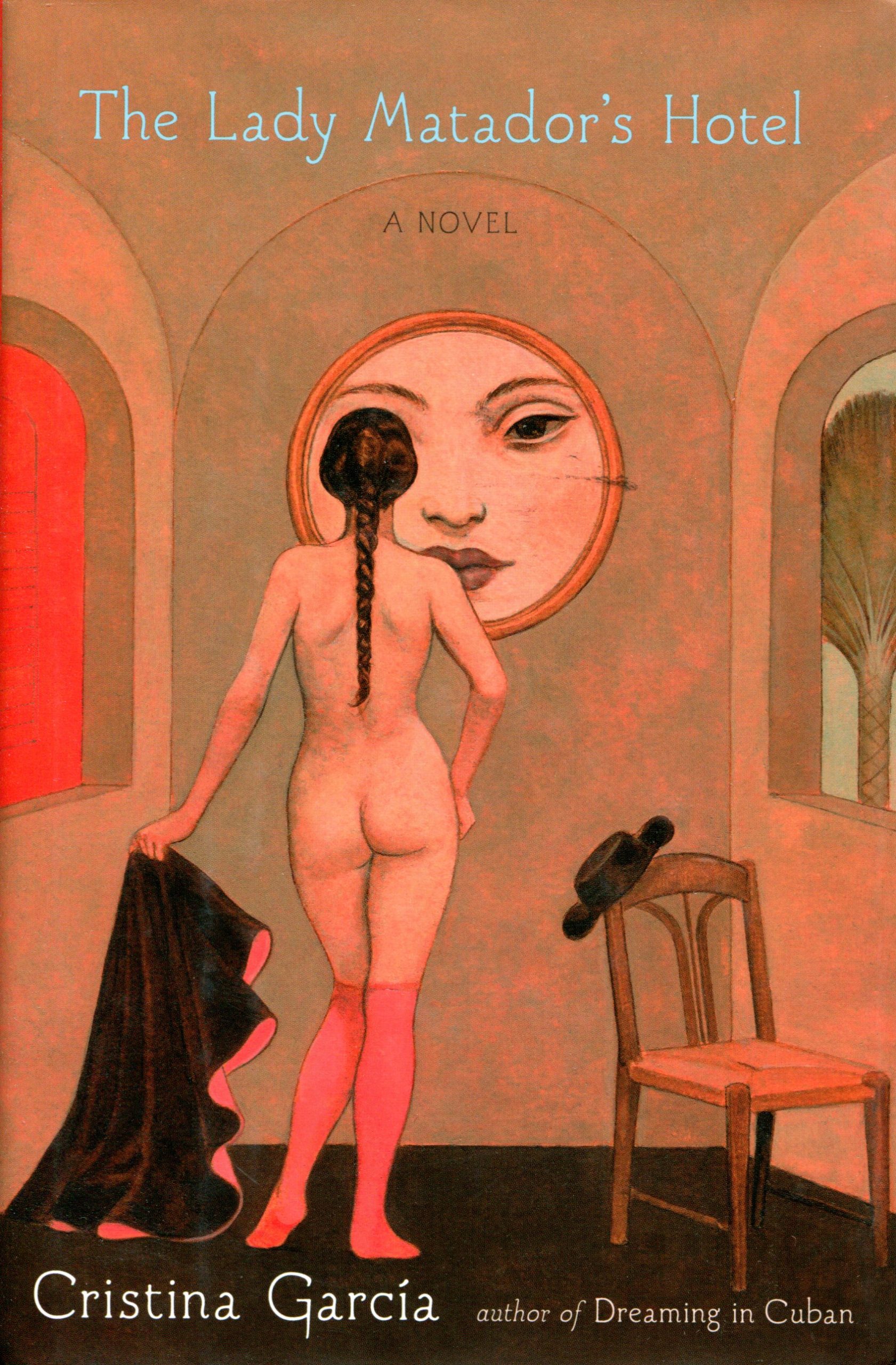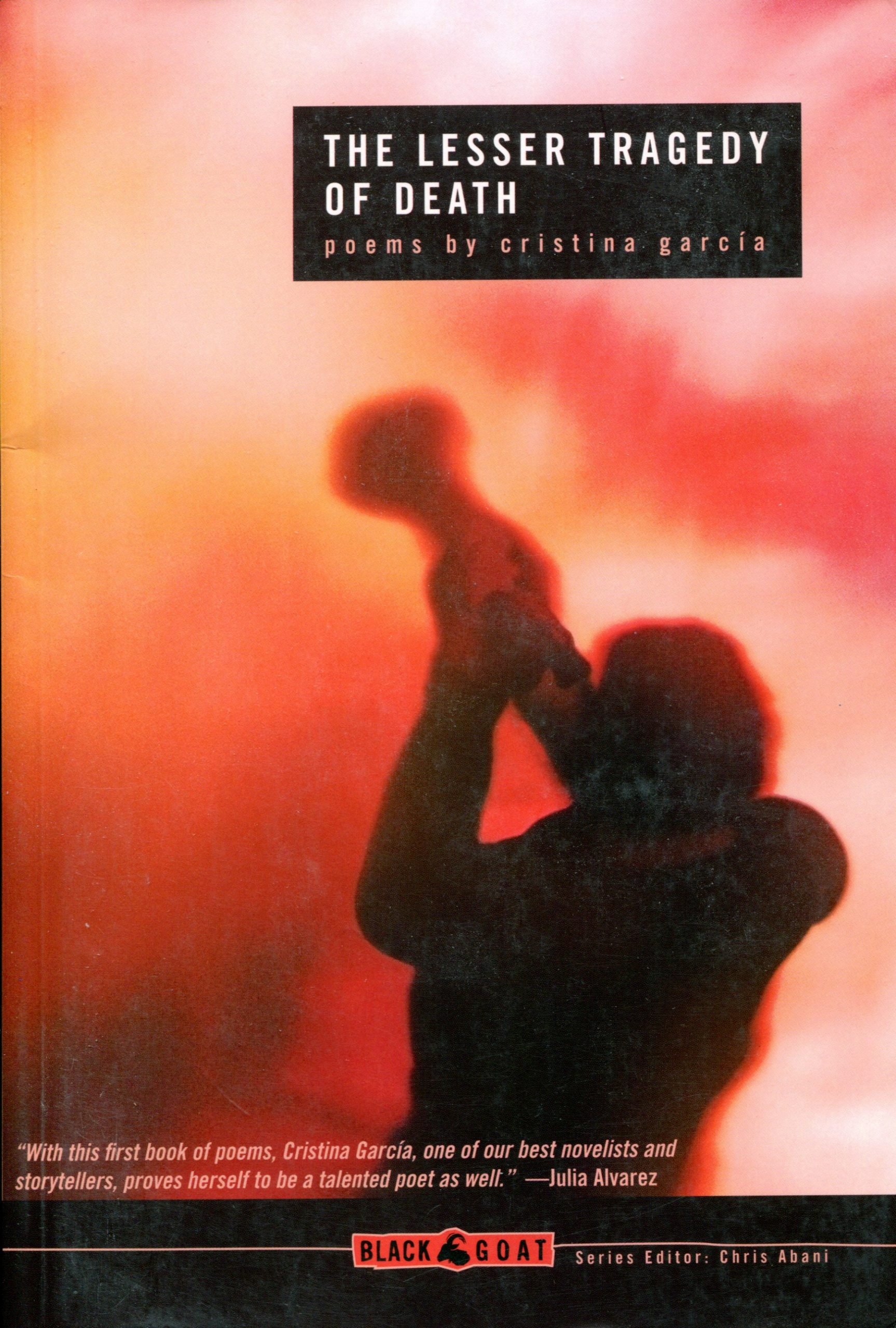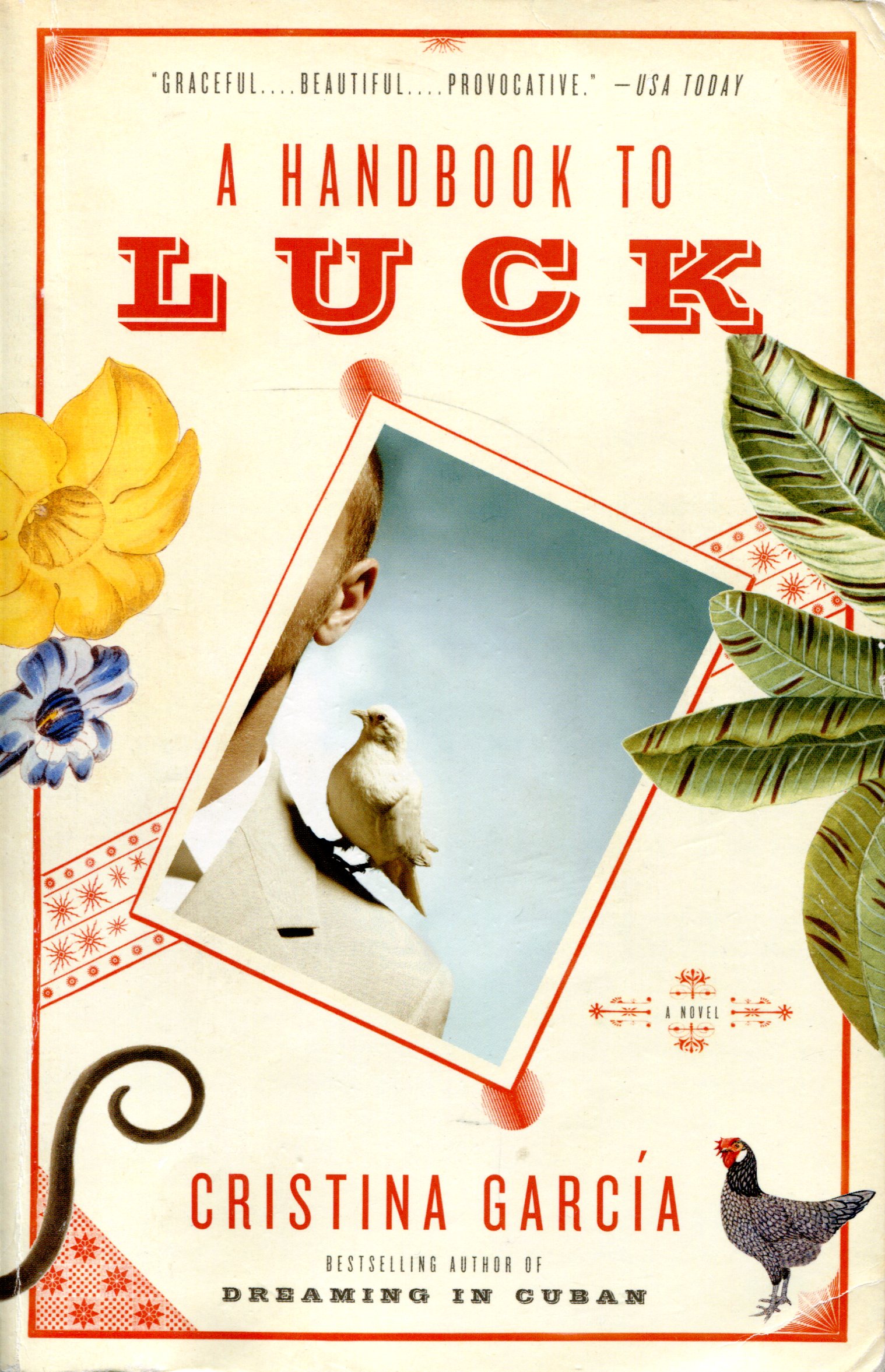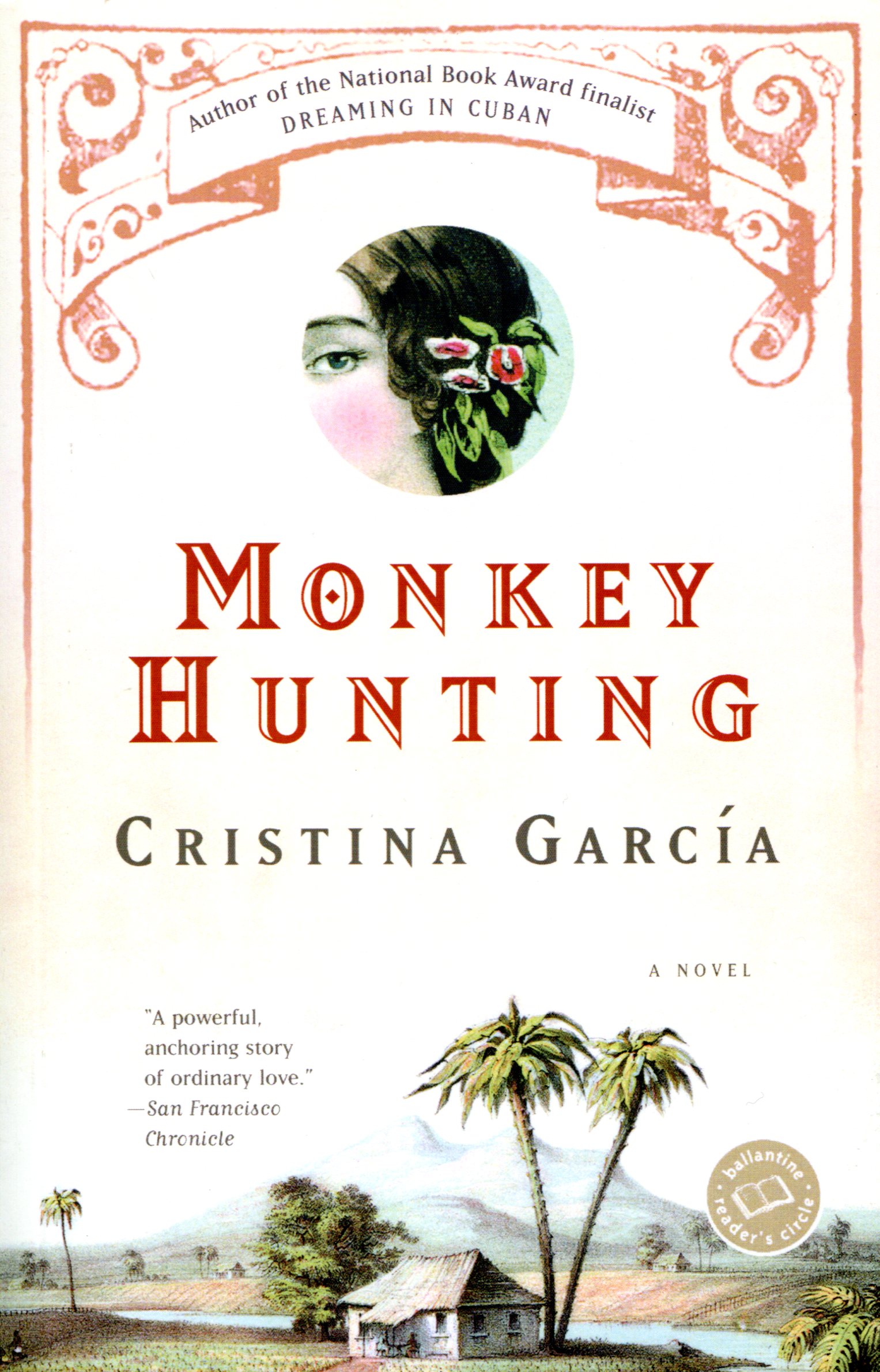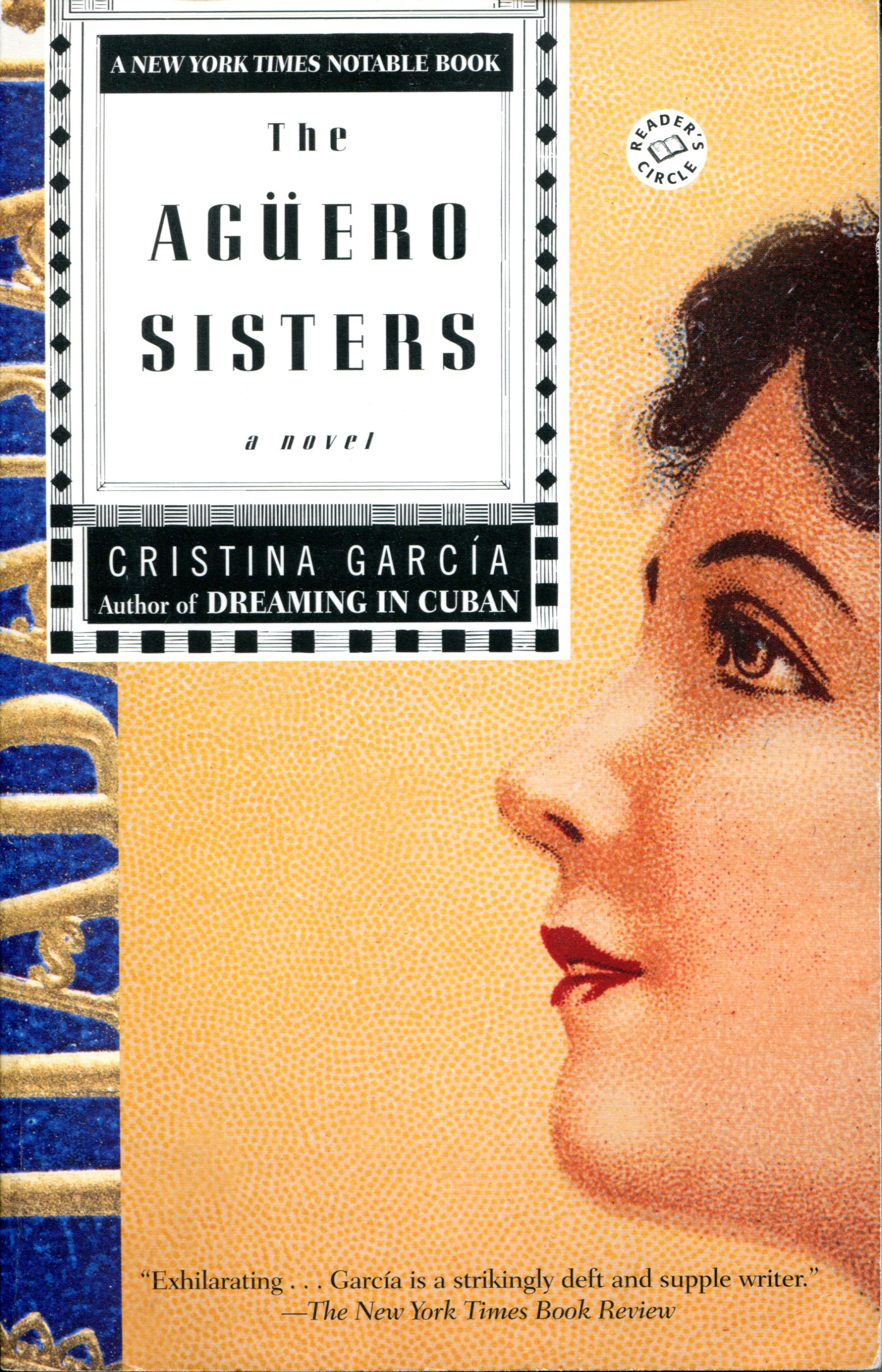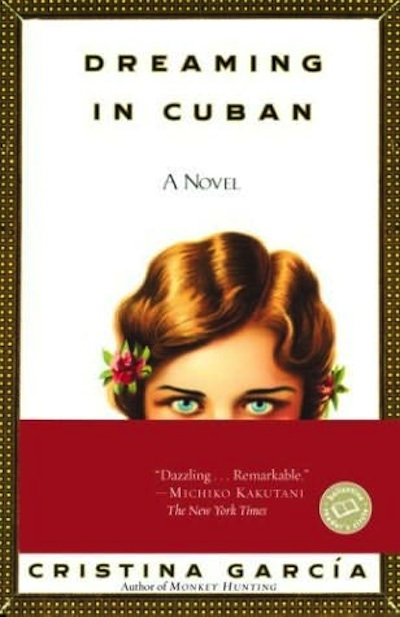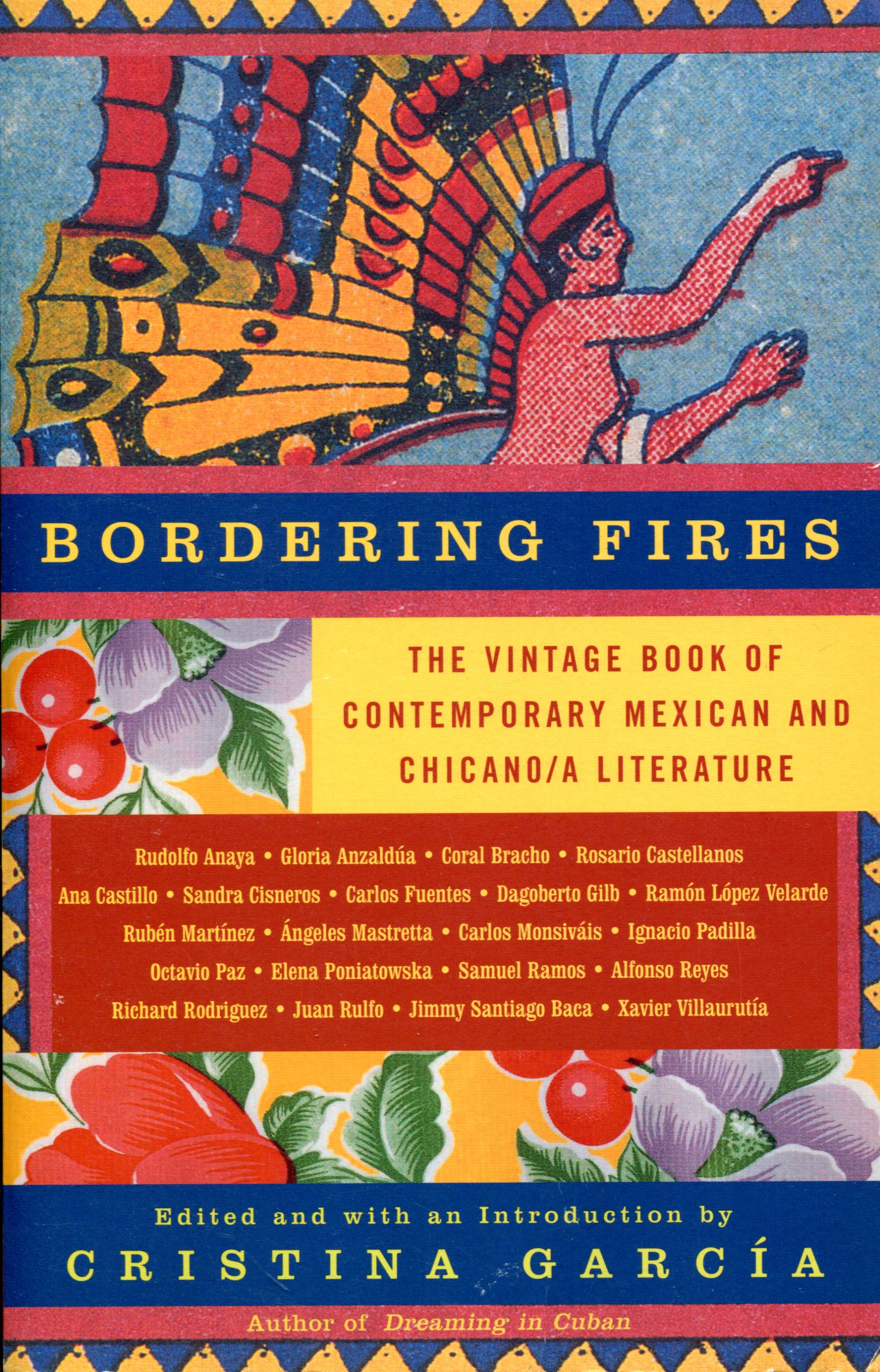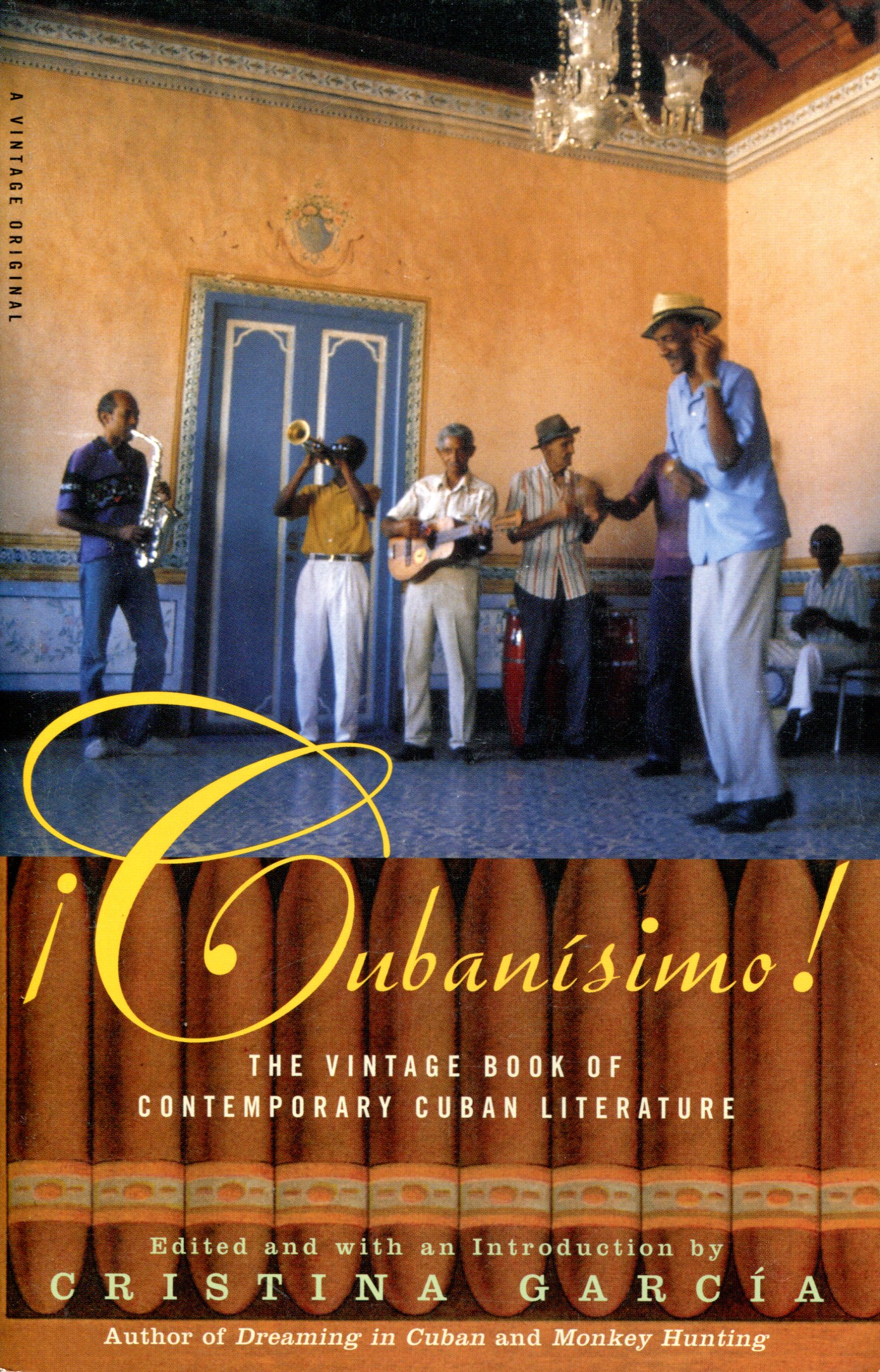

Cristina García
Cuban-American Novelist & Poet
National Book Award Finalist
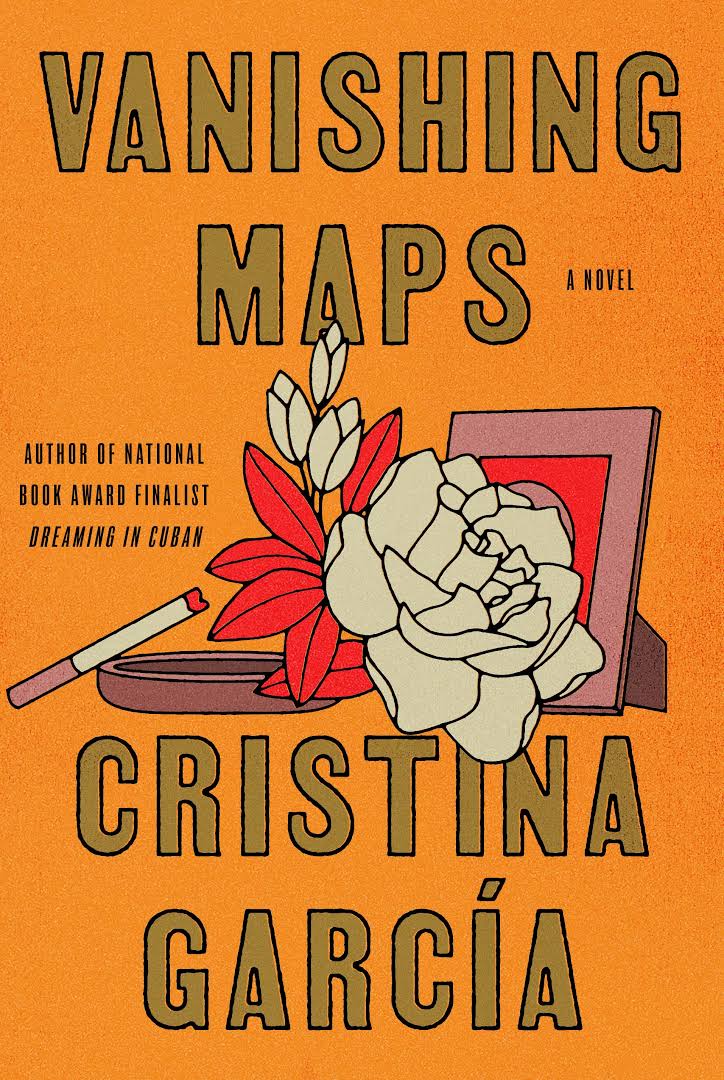
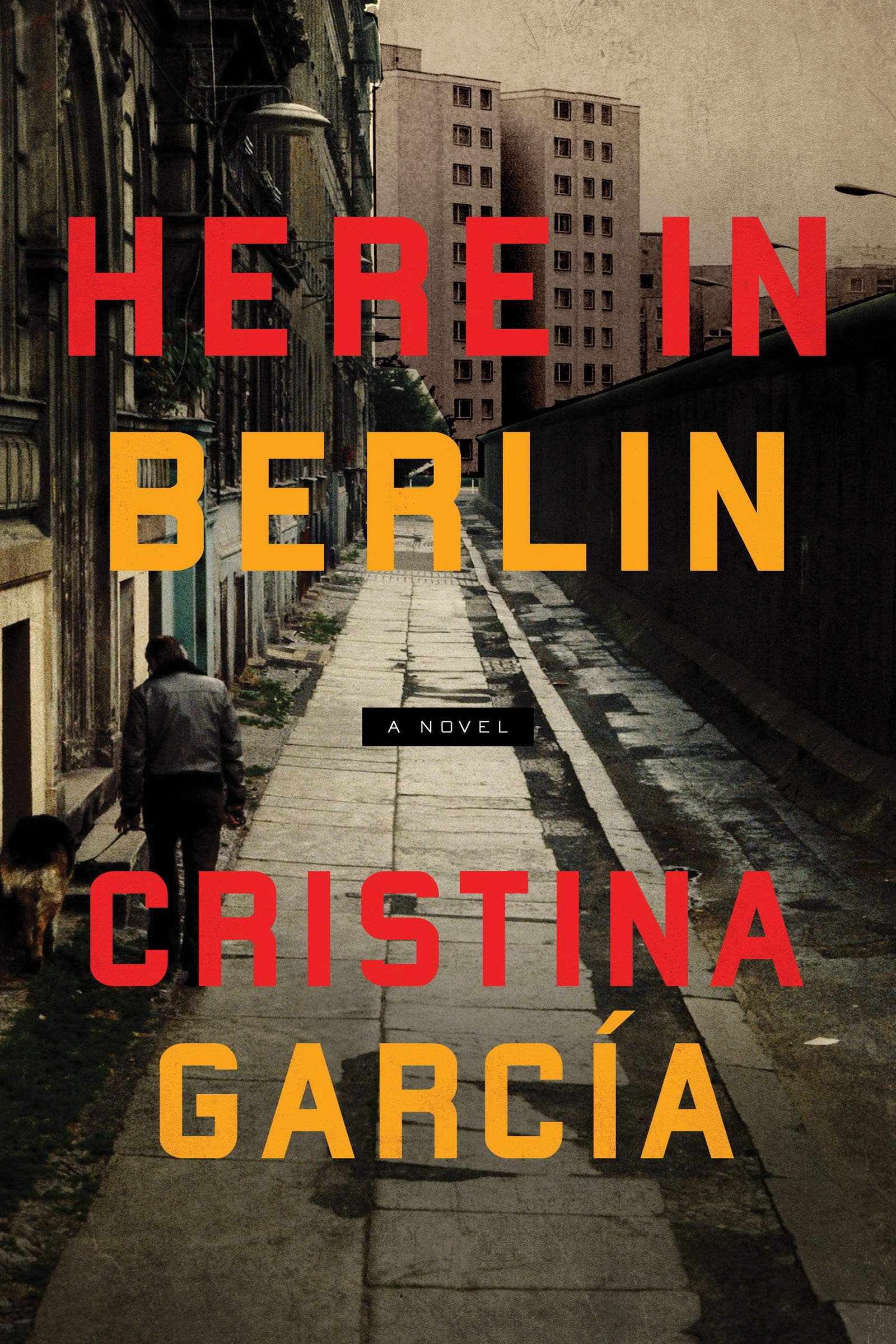
Readings &
Lecture Topics
- Cuba: What Now?
- Exile and the Literary Imagination
- Competing Realities: Reading Fiction in the Modern World
- Cultivating Chaos: Craft Talk/Workshop
- An Evening with Cristina García
Biography
“Cristina García’s work is renewing American fiction.” —The Nation
“Cristina García enchants us with…lyricism and humor and political engagement…” —Edwidge Danticat
Cristina García is the author of eight novels: Vanishing Maps (Knopf, 2023), Here in Berlin: A Novel (2017), King of Cuba (Scribner, 2013), which was adapted into a play in the summer of 2018 at Central Works Theater in Berkeley, The Lady Matador’s Hotel, (Scribner, 2010); A Handbook to Luck (Knopf, 2007); Monkey Hunting (Knopf, 2003); Agüero Sisters (Knopf, 1997), winner of the Janet Heidiger Kafka Prize; and Dreaming in Cuban (Knopf, 1992), finalist for the National Book Award. Elle Magazine called King of Cuba, ”Darkly hilarious….With a fine balance of wry absurdity and existential poignancy, García builds not just a tale of the end of days but a snapshot of the past impact and future reverberations of Cuba’s revolution—a theme more fascinating than ever as the once-isolated island nation opens itself to the world.”
García has edited two anthologies, Bordering Fires: The Vintage Book of Contemporary Mexican and Chicano/a Literature (2006) and Cubanísimo: The Vintage Book of Contemporary Cuban Literature (2003). She is also the author of three works for young readers, Dreams of Significant Girls (2011), a young adult novel set in a Swiss boarding school in the 1970s; The Dog Who Loved the Moon, illustrated by Sebastia Serra, (Atheneum, 2008); and I Wanna Be Your Shoebox (Simon and Schuster, 2008). A collection of poetry, The Lesser Tragedy of Death (Akashic Books), was published in 2010.
García was born in Havana to a Guatemalan father and Cuban mother. In 1961, when she was two years old, her family was among the first wave of people to flee Cuba after Fidel Castro came to power. They settled in New York City where she was raised in Queens, Brooklyn Heights, and Manhattan, in predominantly Irish, Italian, and Jewish neighborhoods. Her family, however, communicated at home in Spanish and shared many stories about Cuba during her youth; and she says that she has always thought of herself as Cuban.
García was a reporter for the Knoxville Journal before she was hired in 1983 by Time Magazine. Beginning there as a reporter and researcher, she became the publication’s San Francisco correspondent in 1985, and its bureau chief in Miami for Florida and the Caribbean region in 1987. In 1988 she was transferred to Los Angeles. She left Time to write fiction full-time in 1990.
García holds a Bachelor’s degree in Political Science from Barnard College, and a Master’s degree in International Relations from the Johns Hopkins University School of Advanced International Studies. Her work has been nominated for a National Book Award and translated into 14 languages. She is the recipient of a Guggenheim Fellowship, a Whiting Writers’ Award, a Hodder Fellowship at Princeton University, and an NEA grant, among others. García has been a Visiting Professor at the Michener Center for Writers at the University of Texas-Austin and The University of Miami. She has served as Professor and University Chair in Creative Writing at Texas State University-San Marcos from 2012-14.
García is also the founder and artistic director of Las Dos Brujas Writers’ Workshops. She currently lives in northern California.
Short Bio
Cristina García is the author of eight novels: Vanishing Maps; Here in Berlin; King of Cuba; The Lady Matador’s Hotel; A Handbook to Luck; Monkey Hunting; The Agüero Sisters, winner of the Janet Heidiger Kafka Prize; and Dreaming in Cuban, finalist for the National Book Award. García has edited two anthologies, Bordering Fires: The Vintage Book of Contemporary Mexican and Chicano/a Literature and Cubanísimo: The Vintage Book of Contemporary Cuban Literature. She is also the author of three works for young readers, Dreams of Significant Girls; The Dog Who Loved the Moon; and I Wanna Be Your Shoebox. A collection of poetry, The Lesser Tragedy of Death, was published in 2010.
Visit Author WebsiteVideos
Publications
Vanishing Maps
Novel, 2023
From the acclaimed author of Dreaming in Cuban, a follow-up novel that tracks four generations of the del Pino family against the tumultuous backdrops of Cuba, the U.S., Germany, and Russia in the new millennium.
Celia del Pino, the matriarch of a far-flung Cuban family, has watched her descendants spread out across the globe, struggling to make sense of their transnational identities and strained relationships with one another. In Berlin, the charismatic yet troubled Ivanito performs on stage as his drag queen persona, while being haunted by the ghost of his mother. Pilar Puente, adrift in Los Angeles, is a struggling sculptor and the single mother of a young son. In Moscow, Ivanito’s cousin, Irina, has become the wealthy owner of a lingerie company, but she remains deeply lonely in the wake of her parents’ deaths and her estrangement from her Cuban heritage. Meanwhile, in Havana, Celia prepares to reunite with her lost lover, Gustavo, and wonders whether age and the decades spent apart have altered their bond.
Cut off from their Cuban roots, yet still feeling the island’s ineluctable pull, Ivanito and his extended family try to reimagine where—and with whom—they belong. Over the course of a momentous year, each will grapple with their histories as they are pulled to Berlin for a final, explosive reunion.
Set twenty years after the events in Dreaming in Cuban, Cristina García’s new novel is an epic tale of family, devotion, and the timeless search for home.
Here in Berlin: A Novel
Novel, 2017
“Here in Berlin is an impeccable linguistic exercise in narratology and a brilliant exploration of the various identities we adhere to in metropolitan environments… García adeptly passes [readers] the torch, giving them a little nook in which they can sit and watch the characters go about their lives” ―LA Review of Books
Here in Berlin is a portrait of a city through snapshots, an excavation of the stories and ghosts of contemporary Berlin―its complex, troubled past still pulsing in the air as it was during World War II. Critically acclaimed novelist Cristina García brings the people of this famed city to life, their stories bristling with regret, desire, and longing.
An unnamed Visitor travels to Berlin with a camera looking for reckonings of her own. The city itself is a character―vibrant and postapocalyptic, flat and featureless except for its rivers, its lakes, its legions of bicyclists. Here in Berlin she encounters a people’s history: the Cuban teen taken as a POW on a German submarine only to return home to a family who doesn’t believe him; the young Jewish scholar hidden in a sarcophagus until safe passage to England is found; the female lawyer haunted by a childhood of deprivation in the bombed-out suburbs of Berlin who still defends those accused of war crimes; a young nurse with a checkered past who joins the Reich at a medical facility more intent to dispense with the wounded than to heal them; and the son of a zookeeper at the Berlin Zoo, fighting to keep the animals safe from both war and an increasingly starving populace.
A meditation on war and mystery, this an exciting new work by one of our most gifted novelists, one that seeks to align the stories of the past with the stories of the future.
King of Cuba
Novel, 2013
“García takes one of the most fascinating political figures of the 20th century and…imagines him as a man—and, through him, imagines his country. [She] invests her characters and their memories with rich detail. In the end, her subject matter…is Cuba.” —New York Times Book Review
Vivid and teeming with life, King of Cuba transports readers to Cuba and Miami, and into the heads of two larger-than-life men: a fictionalized Fidel Castro and an octogenarian Cuban exile obsessed with seeking revenge against the dictator. García’s masterful twinning of these characters combines with a rabble of other Cuban voices to portray the passions and realities of two Cubas—on the island and off— in a pulsating story that entertains and illuminates. Told with wry wit and keen insight, this entertaining and richly satisfying story shifts between the two men with great resonance and humor, and is peppered with the rabble of other Cuban voices that create a patchwork of history’s unofficial stories. Writing at the top of her form, García returns to the territory of her homeland and her bestselling novel Dreaming in Cuban.
Dreams of Significant Girls
Young Adult, 2011
Brought together each summer at a boarding school in Switzerland, three girls learn a lot more than just French and European culture. Shirin, an Iranian princess; Ingrid, a German-Canadian eccentric; and Vivien, a Cuban-Jewish New Yorker culinary phenom, are thrown into each other’s lives when they become roommates. This is a story of three paths slowly beginning to cross and merge as they spend the year apart, but the summers together. Through navigating the social-cultural shoals of the school, developing their adolescence, and learning the confusing and conflicting legacies of their families’ past, Shirin, Ingrid, and Vivien form an unbreakable bond. Like The Sisterhood of the Traveling Pants, this story takes readers on a journey into the lives of very different girls and the bonds that keep them friends.
The Lady Matador's Hotel
Novel, 2010
“The novel has the energy of an obsessive tango. Or, indeed, a bullfight.” —The New York Times Book Review
A dazzling, evocative novel about the intertwining lives of the denizens of a Latin American hotel in the midst of political turmoil…a fierce and gorgeous story about politics, gender, and passion. In an unnamed Central American capital, at a luxurious hotel, the lives of six men and women converge over the course of one week. There is a Japanese-Mexican-American matadora in town for a bull-fighting competition; an ex-guerilla now working as a waitress in the hotel coffee shop; a Korean manufacturer with an underage mistress ensconced in the honeymoon suite; an international adoption lawyer of German descent; a colonel who committed atrocities during his country’s long civil war; and a Cuban poet who has come with his American wife to adopt a local infant. With each day, their lives become further entangled resulting in the unexpected—the clash of histories and the pull of revenge and desire. Cristina García’s magnificent orchestration of politics, the intimacies of daily life, and the frailty of human nature unfolds in a powerful, ambitious, often comic, and unforgettable tale.
The Lesser Tragedy of Death
Poetry, 2010
“[A] brave and moving tribute to a brother gone astray; with skill, unflinching honesty, and redemptive compassion, Cristina García tracks his marvelous, complex, and errant life….These poems are the beautiful, painful, astonishing result of a journey to hell and back in search of the brother she loves. With this first book of poems, García, one of our best novelists and storytellers, proves herself to be a talented poet as well.” —Julia Alvarez
Articles & Audio
Read What’s In Print
• Confronting History’s Demons: Cristina García’s New Novel, Here in Berlin – NBC News
• Interview with Christina Garcia – The Rumpus
• Review of Here in Berlin by Cristina García – San Francisco Chronicle
• The 10 Latinx Classics I’ve Added To My TBR – Bustle
• García Discusses Changes in Cuba — The Guardian
• Interview on The Lady Matador’s Hotel — Witness
• Interview with Cristina García and Chris Abani — BOMB
• Interview with Cristina García — The Atlantic
Listen to Audio
• Christina Garcia, Latino Heritage Month at the San Francisco Public Library
• Review of King of Cuba — NPR
Watch the Trailer
Selected Writings
KING OF CUBA (novel excerpt)
July 26-28
Tropical forecast: Mostly sunny throughout Cuba with scattered thundershowers. Hot days ahead with temperatures up to 35 degrees Celsius. Global warming begins here, compays. ¿Que? You were expecting another Ice Age? The winds are blowing in from the Atlantic at 30 kilometers per hour. The sea will be turbulent on the northeast littoral. Save those inner tubes for another night…
By the Sea
Havana
El Comandante gazed out the window at the stale light of another tropical morning, at the long curve of crumbling seaside buildings. Spindly, sun-sick palms splintered the skies with their spiky fronds. The sea was a rumpled bed of blues. The usual lovebirds tangled on the malecón,verging on public fornication. He’d passed laws against such displays but it hadn’t deterred the couples. The seawall remained theirs, as it had for generations of lovers before them. It was bad enough that Cuba had a reputation as the brothel of the Caribbean—in a desperate bid for foreign currency, he’d once pronounced his country’s prostitutes the healthiest and best educated on the planet—but this was hardly a laudable distinction.
The tyrant was accustomed to being exceptional, and so he didn’t expect that rules governing ordinary human morality should apply to him. Nothing in his life had followed anyone else’s rules, so why must he go the way of every mediocre nobody on the planet? Dying, he’d decided, was a fate for lesser men.
THE LADY MATADOR’S HOTEL (novel excerpt)
SUNDAY: Room 719
The lady matador stands naked before the armoire mirror and unrolls her long pink stockings. She likes to put these on first, before the fitted pants and the stark white shirt, before the bullioned waistcoat and the ribs-length jacker densely embroidered with sequins and beads; before the braces, and the soft black slippers, and the wisp of silk at her throat; before the montera, an authentic one she ordered from a bullfighters’ shop in Madrid, which sits atop her hair, pulled back in a single braid; before her cape, voluminous as a colony of bats.
Suki Palacios has come a long way to the spired hotel in the tropics, to this wedge of forgotten land between continents, to this place of hurricanes and violence and calculated erasures. She arrived yesterday from Los Angeles, trading the moody squalor of one city for another, the broken Spanish for one more lyrical. In a week she will compete in the first Battle of the Lady Matadors in the Americas. Suki is here early to display her skills and generate enthusiasm for the fight. By the time the other matadoras arrive in the capital, its citizens will be clamoring for blood.
TWENTY-NINE PALMS
For years, I had an 8 x 10
of you in your dress blues.
It was the third time
Since you were six
That you’d worn a uniform:
That time after Catholic school,
And then at the military academy
In Pennsylvania, where you learned
How to kill and hotwire cars
And endure discipline.
How did you take to the
Cold-turkey methods for
Daily everything? Did they
Make you feel at home?
You in the nowhere desert
Fixing weekend caravans
To get laid in LA, racing
sixteen tequila shots.
Coño, men with buzz cuts
Give me the creeps. Enough
With the semper fi postcards.
Get the hell out, already!
Eventually, you did, on a
Dishonorable discharge, another
Story I’m too weary to tell. And you,
With a lit match between your fingers.
-from The Lesser Tragedy of Death

